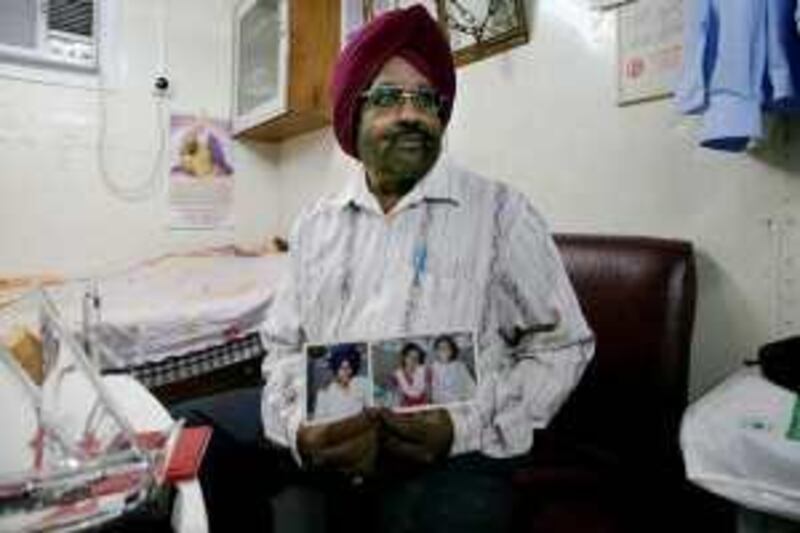RAS AL KHAIMAH // In the 34 years that Manjit Singh Reehal has worked as a carpenter, he has sent enough money home to his native Punjab to educate three daughters and a son, arrange their marriages, finance the wedding of his three sisters and build a house. "God was kind," said Mr Reehal, 61. "I was able to save enough to build that house." He started saving towards it the moment he first arrived.
It took about a decade of savings, the construction took about a year, and in 1982, the family moved into their new home. Mr Reehal, however, did not. Instead, he continued to work here and send money home. The total cost for his dream home: 10 million Indian rupees (Dh79,000). In his first two decades in Ras al Khaimah, Mr Reehal relied on hundi, the informal banking system also known as hawala, to send money to his remote village.
While hawala was popular in the Middle East and African countries, hundi has been popular in the subcontinent. The system's roots date to the time of British rule in India. Around 2002, Mr Reehal switched to more formalised banking. He opened an account with the Indian-based Bank of Baroda, which has branches in the UAE. "I didn't have any problem with using the hundi system," said Mr Reehal. "The money always reached safely but then we started hearing stories that some of our money was being used in the black market before it reached our families. So we got worried."
Mr Reehal, who was paid Dh28 a day when he first joined his company, which works in the quarries in Ras al Khaimah, now earns Dh60 a day. Every month, depending on his upcoming expenses, he sends home between 55 and 60 per cent of his pay. He has maintained that for the past 34 years. "In India, the family lives together. Especially in Punjab, we prefer to stay as a joint family," he said. "Over the years, the family has grown, so I have sent extra money to build an extension."
Mr Reehal's wife now shares the house with their son, daughter-in-law and three grandchildren. sbhattacharya@thenational.ae






